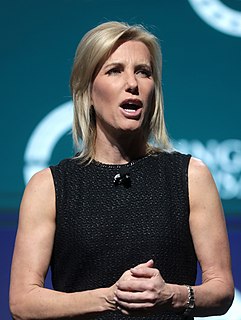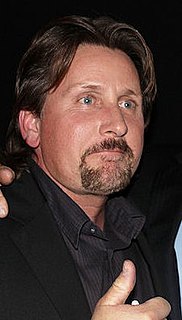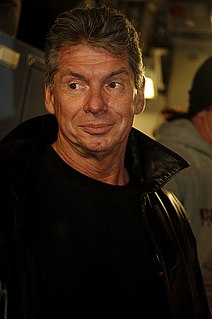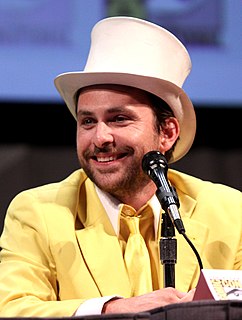A Quote by Mary Kay Ash
Related Quotes
The word 'risk' derives from the early Italian risicare, which means 'to dare'. In this sense, risk is a choice rather than a fate. The actions we dare to take, which depend on how free we are to make choices, are what the story of risk is all about. And that story helps define what it means to be a human being.
None of us wants to admit that we hate someone... When we deny our hate we detour around the crisis of forgiveness. We suppress our spite, make adjustments, and make believe we are too good to be hateful. But the truth is that we do not dare to risk admitting the hate we feel because we do not dare to risk forgiving the person we hate.
Unnamed entertainment industry moguls are now telling the New York Times that they intend never to work with Mel Gibson again. After all, how dare Mel Gibson challenge the public by producing a film that spurs public discussion, that pushes the envelope, that takes an old story to a new level. How dare Mel Gibson follow his own passion as a filmmaker. How dare he make $20 million on the opening day box office!
People who thought that she was busy going around trying to stir up difficulty where there was none or less than she imagined, were quite critical of her. She was, we must never forget, a public figure. And in democracies, public figures tend to attract criticism as well as praise. The most dangerous thing would be if anybody were regarded as above criticism. And Eleanor Roosevelt is, in recent years, getting there.
To laugh is to risk appearing a fool. To weep is to risk appearing sentimental. To reach out to another is to risk involvement. To expose feelings is to risk exposing your true self. To place your ideas and dreams before a crowd is to risk their loss. To love is to risk not being loved in return. To hope is to risk pain. To try is to risk failure. But risks must be taken, because the greatest hazard in life is to risk nothing.



































